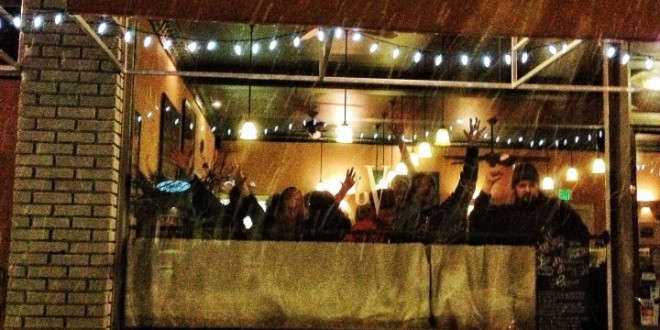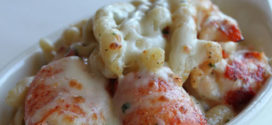There’s been a lot written on the power that Internet anonymity has given us to express ourselves in a manner that we probably wouldn’t have the guts feel comfortable doing in a face-to-face conversation. Louis C.K. did a typically beautiful profane/profound rant on Conan about why his children aren’t getting smart phones (click here to get enlightened). Among one of his more brilliant points was the idea that when you say something mean to someone’s face and you see the actual hurt it causes, you can’t hide from your actions. Seeing the pain your words inflict will hopefully trigger remorse and teach you to be kinder and more gentle. But when you type your mean words into the comment section or onto someone’s Facebook wall, you don’t have that interaction. So there are a generation of children growing up learning how to be really pithy and witty mean-spirited and cruel with an electronic wall to buffer them from their victims.
I would argue that there is also a very specialized group of adults who have adapted quickly to this new form of bullying. Restaurant reviews are a perfect place for the self-styled food critic and gourmand to express his/her caustic surveying of everything from how large a pour of wine they receive to the cleanliness of the establishment to the sauces used on dishes to the professionalism of the staff. As part owner of a restaurant, I read Yelp and Travelocity reviews of other restaurants with a huge grain of salt. Read a really nasty one? I click on that reviewer’s profile and read what he/she has written about other restaurants. 9 times of 10, they have some sort of ax to grind and are in desperate need of a thesaurus as they tend to repeat the same words from review to review as if each restaurant were interchangeable in their minds. For a fun time, check out this Tumblr site and this L.A.-centric one (caution, it’s title is R-rated) to read some of the more hilariously irrationally (not to mention grammatically and spelling-challenged) self-indulgent-rants reviews.
Last week, I had to pull myself together in the basement office, willing myself not to cry after a particularly vitriolic review from someone who fancies themselves a Frank Bruni or François Simon (but far less acerbic or stylish) that singled me out while simultaneously praising the food at barVino. As my brother is the chef at barVino, I’m willing to accept that maybe it was partially a sibling rivalry thing. No, wait, scratch that. My feelings were hurt because this so-called critic felt comfortable from his anonymous online perch to say mean things about me – a person whom he knows nothing about who works in a business that he clearly knows even less about. We don’t seat in the dining room before the kitchen opens on busy holiday weeks because we have a very small kitchen and we don’t want to slam them with a dozen orders right at 5 o’clock. If we did that, customers would be waiting an excessively long period of time for their food. We don’t take reservations because we only have seating for 27 people and our philosophy is to allow our guests to enjoy their meal rather than rushing them through it so that we can turn as many tables as possible in an evening. We don’t seat incomplete parties (whose fellows diners won’t be joining them for another 30 minutes, oh, maybe 45) because it looks like we are holding tables and the next group of guests who comes in will be upset that they have to wait while 2 out of 6 people sit at a mostly empty table in our dining room.
I communicate this information to guests with a smile on my face and suggest alternatives to make their wait pleasant. But sometimes all someone hears is the word “no” even if the word hasn’t actually been used. I’ll admit to past mistakes. Mistakes that I’ve learned from because good friends and patrons have been kind enough to give me feedback. Face-to-face. And I’ll also admit that on busy nights I’m buzzing from the kitchen to the tables to the front door, running food and bussing tables and managing the wait list – which stretches me a bit thin. Bringing in more people to help with the first two tasks will free me up to stand at the front of door and give guests my undivided attention. Constructive criticism in that vein is helpful to a restaurateur. But to trash a person from your position on a barstool without having any real interaction with said person? That’s what I call being uninformed, unhelpful and quite frankly, cowardly.
And having survived my first really nasty online review, I have to say that Johnny Santiago is my new hero. Read his response to a Yelp review of his restaurant here. He was even kind enough to suggest alternative dining in Times Squares. Who says New Yorkers aren’t helpful?
 Sauced In New York Sometimes the food is in the sauce, sometimes we are
Sauced In New York Sometimes the food is in the sauce, sometimes we are





http://ny.eater.com/archives/2011/05/jos_owner_calls_yelper_an_idiot_sends_her_to_applebees.php
I always look to see how many reviews they have written also. If it is under five I know they are the competition or an unhappy employee or just a whiner. Trip advisor especially, you can spot those a mile away. It is a tough business and everyone thinks they are a critic.
I admired Louis CK’s rant on Conan. It’s about seeing the results of and taking responsibility for your own actions, about actually thinking about how you, your words, and your attitude affects others — maybe before you let them out into the world.
Critics with axes to grind. yep. A review of one of Richard Ben Cramer’s books in the NY Times years ago made me wonder whether or not the reviewer had a personal vendetta against the writer. It wasn’t a review of the book (The Four Questions: How Israel Lost). In fact, I wondered if the critic had even read the book as I had (and loved it, thought it was incredibly balanced, bravely researched and bravely written). There’s a big difference between thoughtful criticism (wh, let’s face it, can hurt at first, too) and mean-spirited, self-absorbed rant. The former can be very helpful. The latter is just cowardly bullying.